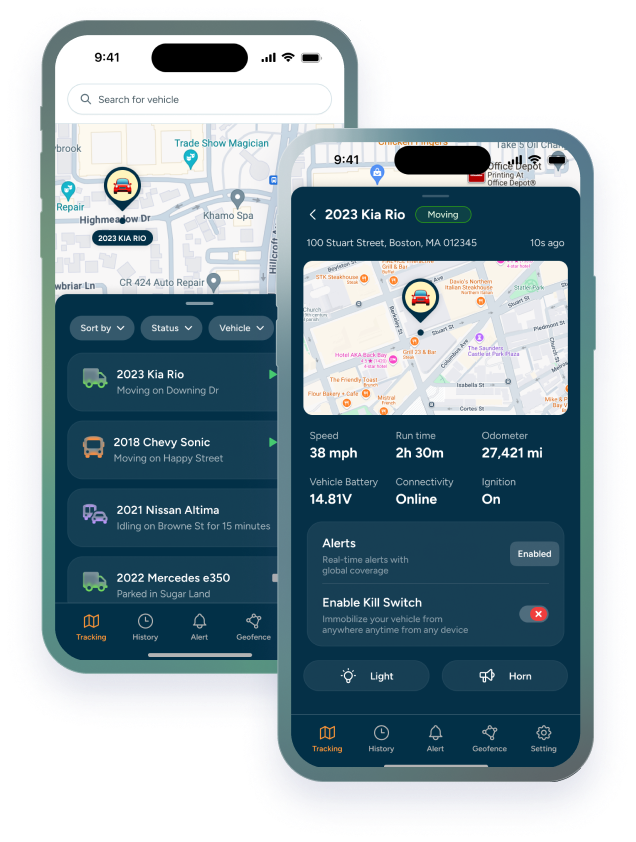The shift towards electric vehicles (EVs) is rapidly transforming the automotive industry, especially within the realm of fleet management. As businesses and government entities move towards fleet electrification, understanding the nuances of EV fleet management becomes crucial. This comprehensive guide dives deep into managing an electric vehicle fleet, highlighting how technologies like Trackhawk GPS play a pivotal role in this green revolution.
Embracing the EV Revolution in Fleet Operations
The transition from internal combustion engine vehicles to electric vehicles marks a significant shift in fleet management strategies. EV fleets offer the promise of reduced cost of ownership, lower emissions, and an opportunity to contribute positively to the environment. However, managing an EV fleet introduces new challenges and considerations, from EV charging infrastructure to energy management.
Understanding the Basics of EV Fleet Management
EV fleet management encompasses the planning, acquiring, deploying, and maintaining of electric vehicles within a fleet. It involves a comprehensive approach that considers the total cost of ownership, including purchasing costs, charging costs, and maintenance expenses. Fleet managers must navigate the complexities of EV charging, ensuring that vehicles are charged and ready to meet the fleet’s needs.
The Role of Fleet Management Software
Fleet management software, especially solutions tailored for EV fleets, is instrumental in addressing the unique challenges of electric vehicle fleet management. This software provides real-time data on vehicle charging status, energy usage, and operational costs, enabling fleet managers to make informed decisions. With Trackhawk GPS’s fleet management solution, managers can monitor and manage their electric vehicles efficiently, ensuring optimal utilization and seamless integration into existing fleet operations.
Navigating EV Charging Infrastructure
A critical component of EV fleet management is developing a robust charging infrastructure. This includes assessing the need for on-site charging stations, exploring public charging networks, and considering home charging options for EV drivers. Establishing a reliable charging network ensures that EVs are ready to perform their duties, minimizing downtime and supporting the fleet’s electrification journey.
Charging Networks and Costs
The growth of the EV charging network in the United States and globally has been a boon for fleet electrification. Charging networks offer various options, from fast charging stations to standard charge points, catering to different fleet requirements. Managing charging costs is essential, as the cost-effectiveness of EV fleets heavily depends on efficient energy management and smart EV charging strategies.
The Total Cost of Ownership and Benefits
One of the most compelling arguments for fleet electrification is the potential reduction in the total cost of ownership. EVs typically have lower operating costs than their internal combustion counterparts, primarily due to lower energy and maintenance costs. However, fleet managers must consider the initial higher purchase price of EVs and the investment in charging infrastructure. Over time, the savings on fuel (oil and gas) and maintenance can significantly offset these initial expenses, making EVs an economically viable option for many fleets.
Fleet Management Solutions for EVs
Trackhawk GPS offers fleet management solutions that are specifically designed for electric vehicle fleets. These solutions provide tools to manage EV charging, monitor energy usage, and track the charging status of each vehicle. With features tailored to the needs of EV fleets, such as charge point integration and smart charging schedules, fleet managers can optimize their operations and support their electrification goals.
Case Studies and Success Stories
Across the United States and the world, numerous organizations have successfully transitioned their fleets to electric. These case studies showcase the strategic planning and execution required for a successful EV fleet management program. By leveraging fleet management software and adopting best practices in EV charging and operations, companies can navigate the challenges of electrification and reap its benefits.
Preparing for the Future of Fleet Electrification
The journey towards a fully electric vehicle fleet is a progressive transition that requires careful planning and execution. Fleet managers must stay informed about the latest in EV technology, charging infrastructure developments, and government regulations. By doing so, they can ensure their fleets remain competitive, sustainable, and aligned with global efforts to reduce carbon emissions.
The Role of EV Models and Driver Engagement
Selecting the right EV models for your fleet is crucial, as each model offers different ranges, capacities, and charging options. Engaging with EV drivers is equally important, as their cooperation and adherence to charging protocols ensure the efficient operation of the fleet. Educating drivers about the benefits of EVs and promoting a code of conduct for vehicle charging and maintenance can foster a positive EV culture within the organization.
Conclusion: Leading the Charge with EV Fleet Management
The transition to electric vehicle fleets represents a significant step forward in reducing the environmental impact of transportation and moving towards sustainable fleet operations. With the right fleet management solutions, such as those provided by Trackhawk GPS, fleet managers can effectively manage their EVs, ensuring they meet the fleet’s operational needs while optimizing charging schedules and costs. As the world moves towards greener alternatives, embracing EV fleet management is not just an operational decision—it’s a commitment to a more sustainable future.

Comments